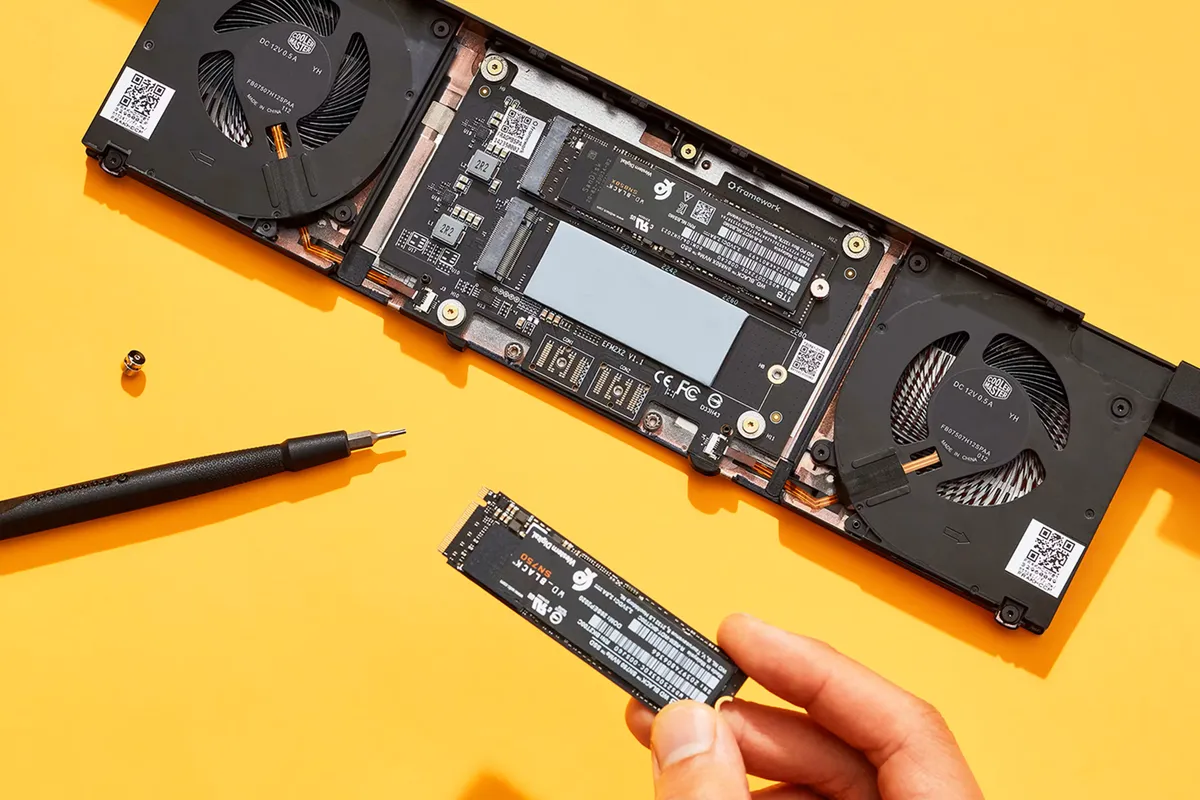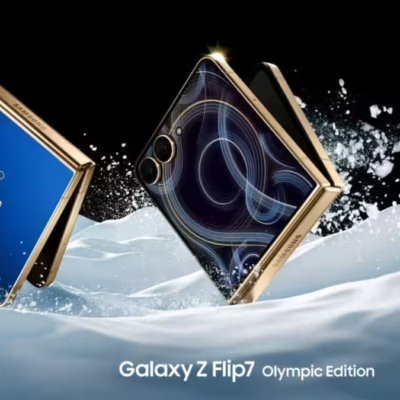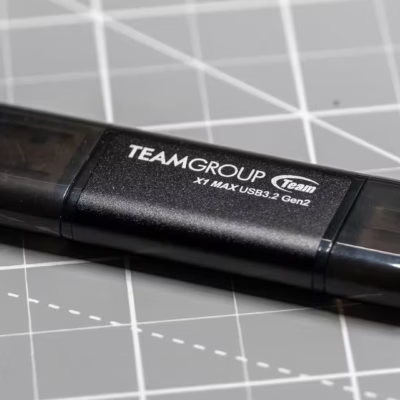Framework Laptop 16 received a module for installing four SSD drives

A year after its announcement, Framework has released the Dual M.2 Adapter, a long-awaited add-on that allows up to four SSDs to be installed in the Framework Laptop 16. This $39 add-on adds two additional M.2 slots, expanding storage options and opening up the prospect of using I accelerators or eGPU adapters.
Modular innovation for maximum capacity
The new Dual M.2 Adapter is the first major addition for the expandable bay Framework Laptop 16 since its launch. Previously, only two options were available to users:
No Dual M.2 Adapter.
- Radeon RX 7700S
- Empty bay with extra fans
graphics module
This bay can now be filled with an additional pair of M.2 modules in 2280, 2260, 2240 and 2230 formats. Each slot is allocated four PCIe 4.0 lanes for high throughput.
In addition to the existing two SSD slots in the Framework Laptop 16, the new module can theoretically accommodate up to 26TB of data. This is possible with drives with current capacities of up to 8TB (M.2 2280) and 2TB (M.2 2230).
At the same time, the new module will be able to accommodate up to 26TB of data.
In addition, users can further expand storage with:
- Framework Expansion Cards for 1TB inserted into the side slots
- SD Cards up to 2TB using the recently released SD Card Reader Module costing $25
Together, this brings the maximum storage capacity to 38TB – a true record for a notebook in this class.
Easy installation and cooling
If users have already purchased a discrete Radeon GPU, they will have to change the module to use the new adapter. However, swapping components in Framework Laptop 16 is quick and easy thanks to its modular design.
Besides the adapter, the company has replaced the liquid metal cooling system with Honeywell PTM7958 thermal paste, which helps prevent possible «performance degradation over time». Such a move is aimed at lowering temperatures and reducing fan noise, which has been an issue for many users.
Honeywell PTM958.
A new approach for enthusiasts and developers
Framework has also launched “Mystery Boxes” – sets of random (possibly non-working) components returned by users. These boxes are intended for enthusiasts and those who want to experiment with new technologies.
.




